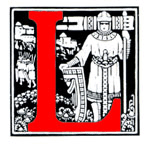 eigh Hunt and his brother John founded the Examiner in 1808 as a weekly paper of Liberal orientation, especially evident in its "Reviews," to which young Charles Dickens made a significant number of contributions (many of which were later published in Miscellaneous Papers, Plays, and Poems, in 1908). John Forster, shortly to begin his life-long friendship and commercial relationship with Dickens, became the magazine's literary editor in 1835, and, succeeding Albany Fonblanque, served as editor from 1847 to 1855. The magazine ceased publication in 1886.
eigh Hunt and his brother John founded the Examiner in 1808 as a weekly paper of Liberal orientation, especially evident in its "Reviews," to which young Charles Dickens made a significant number of contributions (many of which were later published in Miscellaneous Papers, Plays, and Poems, in 1908). John Forster, shortly to begin his life-long friendship and commercial relationship with Dickens, became the magazine's literary editor in 1835, and, succeeding Albany Fonblanque, served as editor from 1847 to 1855. The magazine ceased publication in 1886.
Although Dickens displayed little interest in the serious verse of Browning, Tennyson, or Meredith, he enjoyed poetry of the sentimental and comic varieties, the former often written by middle-class women such as Adelaide Proctor, Felicia Hemans, and Letitia Landon. He admired the comic verse of Thomas Moore, Thomas Hood, Richard Barham, and W. M. Thackeray. His own "Fine Old English Gentleman: New Version" (7 August 1841) Adam Roberts describes as "a fiery comic satire on Tory nostalgia for 'the good old days'. . . " ( Oxford Companion 456). Dickens's poetic output was relatively slight: occasional doggerel verse such as "The Bill of Fare" (1831), four poems for Maria Beadnell's album, three poems for The Pickwick Papers ("The Ivy Green," "A Christmas Carol," and "Gabriel Grub's Song"), and the lyrics for sixteen of John Hallah's songs in the comic opera The Village Coquettes (1836). "The Fine Old English Gentleman" is actually one of three satirical poems he published in the Examiner, the others being "The Quack Doctor's Proclamation" and "Subjects for Painters." In 1842 he wrote a blank-verse prologue for John Westland Marston's The Patrician's Daughter. His last published poem is a prologue to Wilkie Collins's melodrama in which Dickens himself took a leading role, The Frozen Deep (1857).
According to Kathryn Chittick, the first review of a Dickens work (The Village Coquettes) appeared in the Examiner for 11 December 1836; John Forster's drama review was "not favourable" (228). Albany Fonblanque, the journal's political commentator since 1826, took over the Examiner in 1830, serving as editor until 1847. He brought in such contributors as John Stuart Mill, John Forster, W. M. Thackeray, and most notably young Charles Dickens. He wrote the first notice of Sketches by Boz ( 28 February 1836) and of The Pickwick Papers (4 September 1836).
Alex Brice (1972) calculates that over 70 reviews or mentions of Dickens appear in the Examiner during the years 1836-65 (many merely extracts) and are written by four reviewers. . . . Kathryn Chittick (1989) lists 41 notices of Dickens (including minor works and plays) appearing in the paper during the six years from 1836 to 1841 alone." (Oxford Companion 228). Dickens scholar Michael Slater estimates that Dickens probably made a total of over forty contributions to the Examiner, mainly during the years 1837-43 and 1848-9, a period during which the journal's circulation rose from 5,200 in 1829 to 6,000 in 1840, before declining to 4,400 in 1850. After 1849, Household Words and then All the Year Round became Dickens primary vehicles for his journalism since, as editor, he had a far greater measure of control.
Related Materials
- Text of Charles Dickens's "The Fine Old English Gentleman"
- Reading and Discussion Questions
References
Bentley, Nicolas, et al. The Dickens Index. Oxford: Oxford U. P., 1988. Page 88.
Brice, Alex. "Reviewers of Dickens in the Examiner: Fonblanque, Forster, Hunt, and Morley," Dickens Studies Newsletter, 3 (1972).
Chesterton, Gilbert Keith. Dickens and America, Ch. 6. http://www.online-literature.com/chesterton/charlesdickens/6/
Chittick, Kathryn. "Poetry and poets during Dickens's Life-time." The Oxford Reader's Companion to Dickens, ed. Paul Schlicke. Oxford: Oxford U. P., 1999. p. 455.
Davis, Paul. Charles Dickens A to Z: The Essential Reference to His Life on Work. New York: Facts on File, 1998. P. 129.
Dickens, Charles. "The Fine Old English Gentleman: New Version." (1841). The New Oxford Book of Victorian Verse, ed. Christopher Ricks. Oxford: Oxford U. P., 1987.
Vann, J. Don, and Rosemary T. VanArsdel, eds. Victorian Periodicals: A Guide to Research. New York: Modern Language Association, 1978.
Last modified July 28, 2004